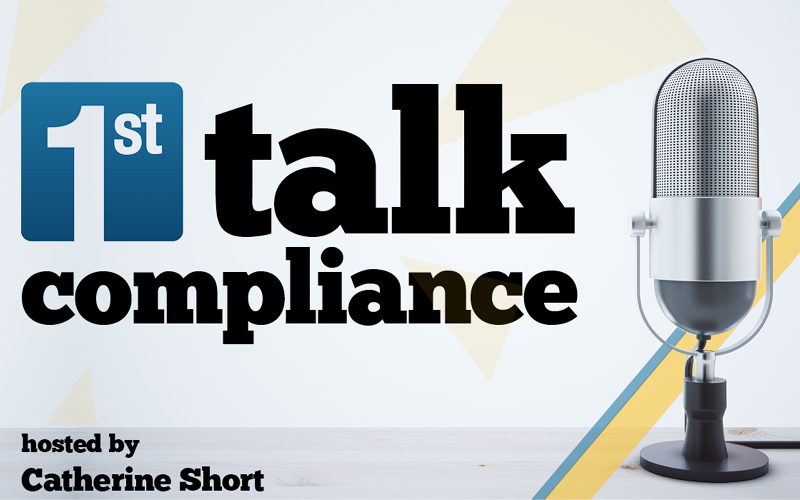
What You Need to Know about The No Surprises Act
Catherine Short speaks with Rachel V. Rose, JD, MBA, principal with Rachel V. Rose – Attorney at Law, P.L.L.C., Houston, TX, on the topic of “The No Surprises Act - What You Need to Know.” Effective January 1, 2022, the No Surprises Act has implications for patients, providers, and insurance companies alike. The impetus behind the legislation, as well as the regulations, is to prevent patients from receiving bills for certain services that were performed or delivered by providers out of their plan's network. The scope is limited and providers and plans alike need to take steps to understand the appeal process when a payment or claim is challenged. The purpose of this episode is to provide a brief overview of the evolution of the United States' healthcare system and its relevance to the No Surprises Act. From there, the No Surprises Act and regulations will be explained, along with the appeal process. Finally, compliance tips will round out the show.
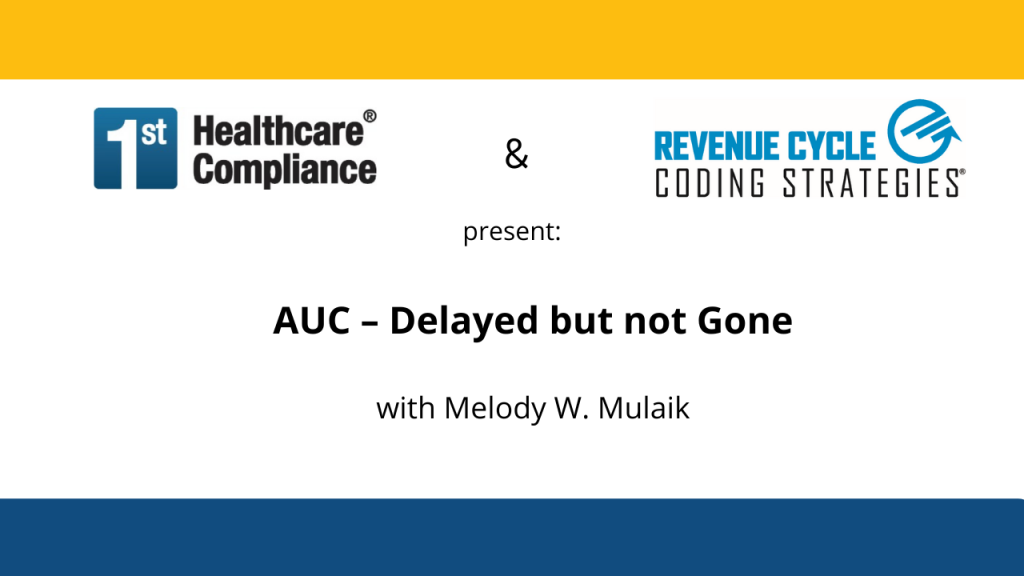
AUC – Delayed but not Gone: Audio Version of the Webinar
/
1 Comment
Melody W. Mulaik, MSHS, FAHRA, CRA, RCC, RCC-IR, CPC, CPC-H is the President of Revenue Cycle Coding Strategies LLC and our esteemed presenter. 2022 was scheduled to be the the official implementation date for AUC/CDS implementation but the 2022 Proposed Rule threw everyone a little curve ball. While a delay will occur it does not change the direction of the program or the need to prepare and test. As providers continue to either prepare their own practices or bridge the gap with imaging facilities, it is important that everyone be on the same page throughout the CMS implementation and remaining testing period.

Appropriate Use Criteria – Delayed but Not Gone
Catherine Short speaks with Melody Mulaik, President of Revenue Cycle Coding Strategies, a dynamic company that works with physician practices, healthcare systems, billing companies and other industry stakeholders to provide auditing, education and other collaborative consulting solutions to meet their coding and compliance needs. First Healthcare Compliance is a proud partner of Revenue Cycle Coding Strategies and our clients have enjoyed many webinars and previous podcasts by this team of experts. Melody joins us to address a current hot topic, “AUC – Delayed but not Gone.” 2022 was scheduled to be the official implementation date for AUC/CDS implementation but the 2022 Proposed Rule threw everyone a little curve ball. While a delay has occurred, it does not change the direction of the program or the need to prepare and test. As providers continue to either prepare their own practices or bridge the gap with imaging facilities, it is important that everyone be on the same page throughout the CMS implementation and remaining testing period.
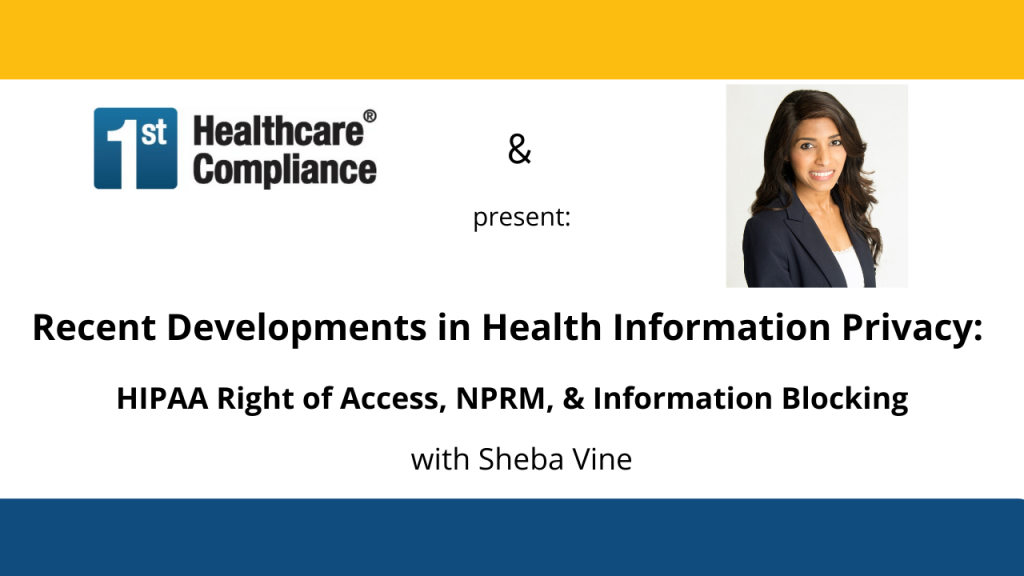
Recent Developments in Health Information Privacy: HIPAA Right of Access, NPRM, & Information Blocking: Audio Version of the Webinar
First Healthcare Compliance hosts Sheba Vine, Attorney and Senior Manager in the Global Privacy Office at Exact Sciences Corporation, for an interactive discussion on “Recent Developments in Health Information Privacy: HIPAA Right of Access, NPRM, & Information Blocking.” This presentation will review recent developments including OCR Enforcement Highlights, HIPAA Right of Access & Ciox Health Decision, NPRM, and 21st Century Cures Act Information Blocking Regulation.

Recent Developments in Health Information Privacy: HIPAA Right of Access
Catherine Short speaks with Sheba Vine, Attorney and Senior Manager in the Global Privacy Office at Exact Sciences Corporation, on the topic of “Recent Developments in Health Information Privacy: HIPAA Right of Access.” We will review recent developments including OCR Enforcement Highlights, HIPAA Right of Access & Ciox Health Decision, NPRM, and 21st Century Cures Act Information Blocking Regulation.
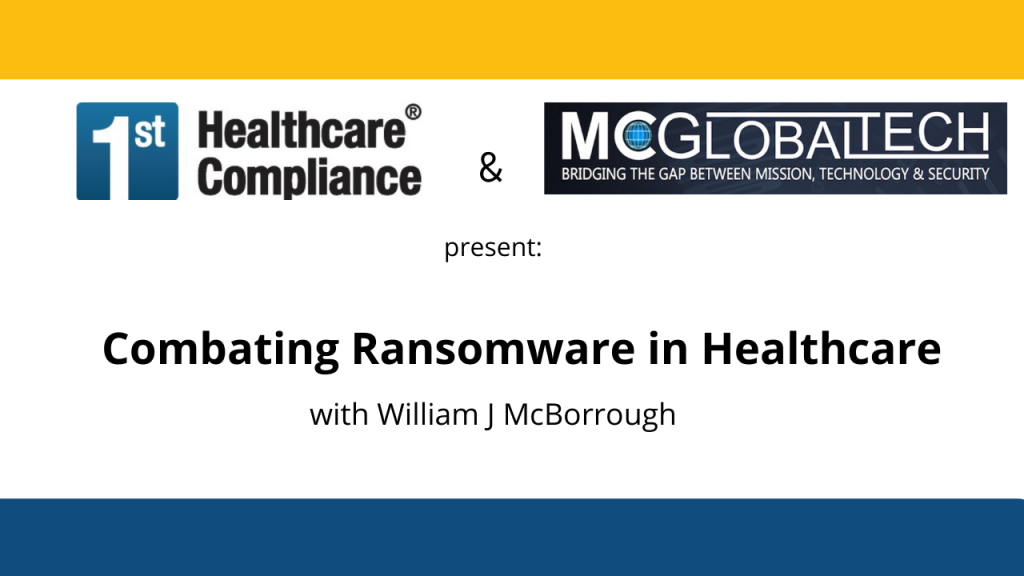
Combating Ransomware in Healthcare: Audio Version of the Webinar
First Healthcare Compliance hosts William J McBorrough, co-Founder and Chief Security Advisor at MCGlobalTech, a Washington, D.C.-based Information Security Consulting Firm for an interactive discussion on “Combating Ransomware in Healthcare.” Ransomware attacks have impacted thousands of organizations worldwide. The healthcare sector has been the most targeted. Join in to discuss the state of ransomware in the healthcare sector in 2021 and best practices to prepare your organization from the inevitable attacks.
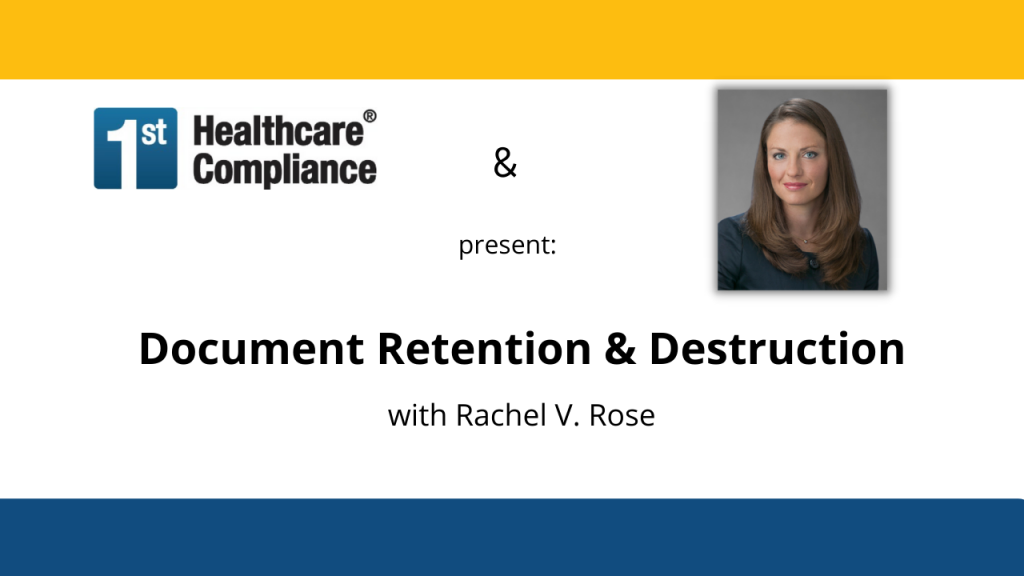
Document Retention & Destruction: Audio Version of Webinar
Rachel V. Rose, JD, MBA, principal with Rachel V. Rose – Attorney…

Why Healthcare Organizations Need to Take a New Approach to Cybersecurity & Data Privacy Training
Catherine Short speaks with Rebecca L. Rakoski, managing partner at XPAN Law Partners and Saj Naseem, Chief Information Security Officer (CISO) from NJ Courts on the topic of “Why Healthcare Organizations Need to Take a New Approach to Cybersecurity & Data Privacy Training.” On this episode, we will discuss how training, using traditional methods can cause greater liability and threats to an organization.
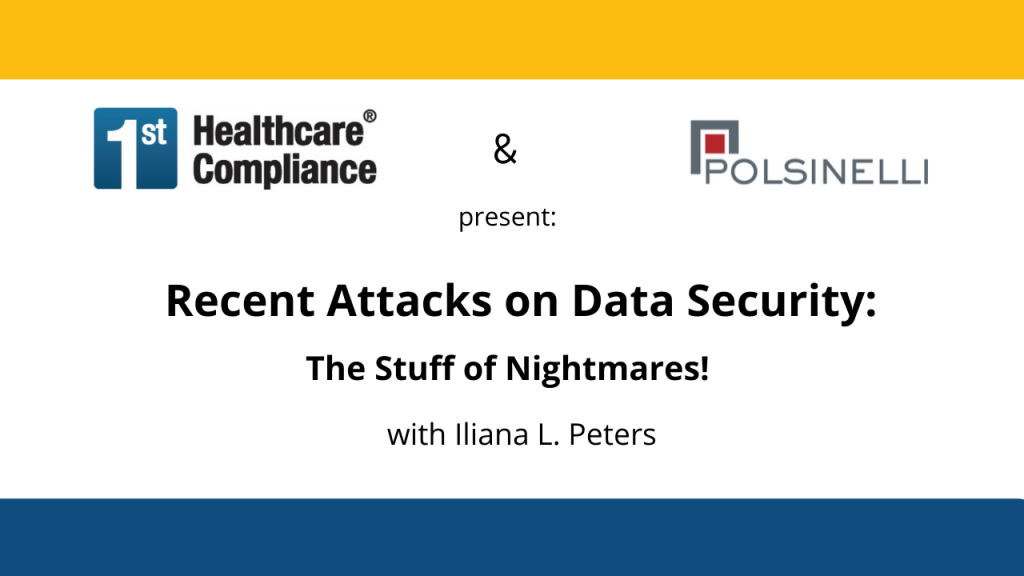
Recent Attacks on Data Security: The Stuff of Nightmares!
First Healthcare Compliance hosts Iliana L. Peters, Shareholder at Polsinelli PC, for an interactive discussion on “Recent Attacks on Data Security: The Stuff of Nightmares!” This presentation will include information on state law protections and expansions, thoughts regarding recent developments in cyber security issues like ransomware, and analysis of the greatest data privacy and security risks to companies in the current legal and regulatory environment.
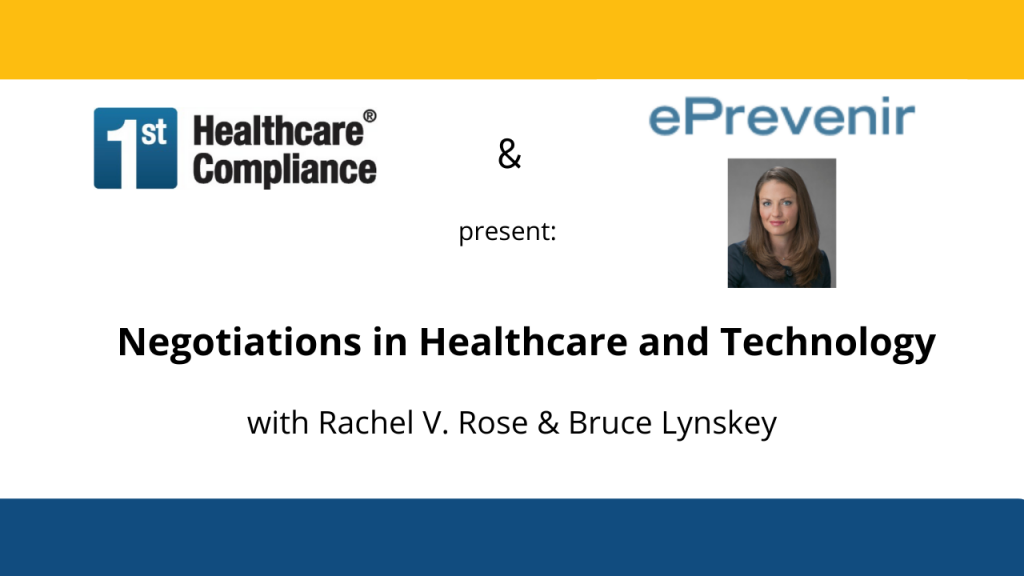
Negotiations in Healthcare and Technology
Rachel V. Rose, JD, MBA, principal with Rachel V. Rose – Attorney at Law, P.L.L.C., Houston, TX and Bruce Lynskey, Co-Founder, Director, and Chief Executive Officer at ePrevenir will be presenting with us. Negotiating occurs in every facet of business and law. From contractual negotiations through settlement negotiations, it is a delicate dance. There are a variety of classic negotiation techniques, which include extreme posturing and “anchoring”. Healthcare and cybersecurity present unique challenges because of the looming exposure to a government investigation and either a civil and/or criminal action, even if a settlement is reached between two private parties. The purpose of this presentation is to provide approaches when negotiating contracts, settlements, and other items, which arise in healthcare and the cybersecurity industries.
Subscribe to Podcast
Get the latest First Healthcare Compliance Podcast updates straight to your inbox.
